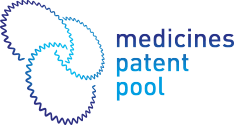A Lasting Alliance to Ensure Equitable Access to Affordable Medicines
26 October 2022

I was one of the youngest female heads of the department in the company’s history and I lead a large R&D team. I am a pharmacist by training and I am currently enrolled in a master’s public health programme in New Jersey, USA. I joined Remington in 2017 and at the time it was striving towards achieving WHO Prequalification of a second line anti-TB product and I had the opportunity to lead the WHO PQ Project from 2018 onwards. There was limited knowledge of this entire process in the pharmaceutical sector as Remington was the only one to pursue and achieve this landmark. A lot of work needed be done including revision of documents, site up-gradations, qualification, trainings, new systems implementation etc. One of the core reasons we were able to successfully attain this milestone is because my colleagues trusted my leadership to work towards the company’s vision of producing high quality medicines. It took us almost four years of extreme efforts to achieve WHO Prequalification becoming the first national pharmaceutical company to gain this esteemed certification.
Sehrish Aslam is the Head of Global R&D and Corporate Compliance (GxP) at Remington Pharmaceuticals.
– By Sehrish Aslam, Head of Global R&D and Corporate Compliance (GxP)
Remington Pharmaceuticals is the first and only nationally owned pharmaceutical company from Pakistan to attain WHO Prequalification. Remington has been focused on producing world-class medicinal and nutritional products at affordable prices to low- and middle-income countries (LMICs) for over 40 years. We have truly aligned our corporate mission with the UN Sustainable Development Goals (SDGs) and policies to ensure that Remington plays an active role towards a sustainable and healthier future for all.
We used our pharmaceutical background and International Quality Pharmaceutical production and QCL facilities, to target the underlying causes of malnutrition, we started with the development of a nutrient supplement for children and pregnant women becoming the first producers from the country. Nutritional deficiency in infants, children, adolescents and women of child-bearing age in LMICs such as Pakistan is very alarming, the importance of this area is highlighted by the fact that 144 million under the age of 5 are too short for their age, and their brains may never develop to their full cognitive potential.
Working with MPP
We are the first company from Pakistan to sign licensing agreements with MPP, we truly believe that licensing is bringing unparalleled benefits to the people in Pakistan and beyond. Already, we have signed three licensing agreements with MPP. These include glecaprevir/pibrentasvir (G/P) for the treatment of hepatitis C, molnupiravir and nirmatrelvir for the treatment of Covid-19. These voluntary licences provide an opportunity for us to be included in scaling up production and bringing low-cost generic products into the market, ensuring that the products reach those who desperately need them, at a faster rate. Furthermore, I believe this opportunity has also provided our R&D team with the confidence to develop and manufacture products at a global level.
We have an amazing working relationship with MPP, and the quarterly meetings conducted for updates on the development of projects ensure strict development timelines are met. MPP’s assistance enables us to overcome any obstacle that we may face. The insights provided by the MPP team have been extremely valuable at all stages of product development and the technology transfer package where sourcing a sample of the originator product has helped us fast-track the overall project. It’s a true privilege to be a partner and work with MPP in this work of extreme importance.
COVID-19
The COVID-19 pandemic took the world by shock, the ever-increasing cases and numerous variants that have emerged were a hurdle for healthcare workers to find a cure or prevention technique that could be used across the board. COVID-19 did adversely affect our business model, the lockdown hindered all logistical activities, distribution of products, sourcing of raw materials, and ensuring full workforce availability.
We have a dedicated Access to Medicine Division at Remington, the primary purpose of the Division is to play its part in the fight against infectious diseases, and this can be reiterated by the fact that we achieved WHO-PQ for an anti-infective product.
As such, we feel that our sublicences for molnupiravir and nirmatrelvir signed with MPP were right for us, as we were moving towards diversifying our infectious diseases portfolio. Our aim is to provide these products as low-cost generics in the public and private market through connecting with humanitarian aid agencies. Molnupiravir is at the advanced stages of development, and we foresee a WHO PQ filing within the year 2022 and nirmatrelvir will be available to patients by early 2023.
Hepatitis C
The prevalence of the Hep C is alarming, Pakistan has the second highest global burden of hepatitis C virus in the world. The efforts toward Hep C have been growing significantly, but there is still a huge gap between the production and access of these essential medicines for those who need them. As G/P is the WHO recommended pan-genotypic medicine for Hep C, this is a unique product that can cure a broad spectrum of patients in the region.
Currently, there is a lack of availability of G/P generics in the market, but we are hopeful that, in the coming years, the uptake of this product will increase significantly to tackle the Hep C situation in Pakistan and in the region.
Moving forward
Going forward we hope to partner with MPP in other disease areas. We are working tirelessly to evaluate and add new innovative products to our portfolio. We are moving towards non-communicable diseases (NCDs) and neglected tropical diseases (NTDs) as well.
The work MPP is doing, is outstanding, and adding value on a global scale, and it can be observed how the model is gaining traction by the visible increase in the number of generic manufacturers participating in the EOIs, and we hope that we are on the forefront whenever a new opportunity arrives. The NCDs are an area that needs the world’s attention, this is where we believe we can have a potential collaboration.
In addition to that, as we are moving towards the commercialisation of licensed products, and have invested heavily in these products with pricing at minimum margins. We do feel that MPP can support more generic manufacturers by bringing global organisations to provide guaranteed commercial uptake and market insights to contribute toward a sustainable business.







